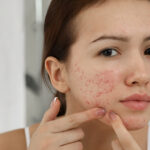Sleeplessness …… A Silent Killer!!!!!

Sleep specialists say that sleep-deprived men and women report lower libidos and less interest in sex. Depleted energy, sleepiness, and increased tension may be largely to blame.
Sleeplessness causes depression
The most common sleep disorder, insomnia, has the strongest link to depression. In fact, insomnia is often one of the first symptoms of depression
Myths regarding sleep
Myth 1: Getting just one hour less sleep per night won’t affect your daytime functioning
Myth 2: Your body adjusts quickly to different sleep schedules
Myth 3: Extra sleep at night can cure you of problems with excessive daytime fatigue
Myth 4: You can make up for lost sleep during the week by sleeping more on the weekends.
Myth 5- More intelligent people sleep less.
The sleep cycle-
- Non-REM (NREM) sleepconsists of three stages of sleep, each deeper than the last.
- Stage N1 (Transition to sleep)– This stage lasts about five minutes. Your eyes move slowly under the eyelids, muscle activity slows down, and you are easily awakened.
- Stage N2 (Light sleep)– This is the first stage of true sleep, lasting from 10 to 25 minutes. Your eye movement stops, heart rate slows, and body temperature decreases.
- Stage N3 (Deep sleep)– You’re difficult to awaken, and if you are awakened, you do not adjust immediately and often feel groggy and disoriented for several minutes. In this deepest stage of sleep, your brain waves are extremely slow. Blood flow is directed away from your brain and towards your muscles, restoring physical energy
B.REM (Rapid Eye Movement) sleep is when you do most active dreaming. Your eyes actually move back and forth during this stage, which is why it is called Rapid Eye Movement sleep. You enter REM sleep 70 to 90 minutes after falling asleep
The stages of REM and non-REM sleep form a complete sleep cycle. Each cycle typically lasts about 90 minutes and repeats four to six times over the course of a night. Deep sleep (Stage N3) and REM sleep are particularly important.
Our 24-hour sleep-wake cycle, otherwise known as your biological clock or circadian rhythm, is regulated by processes in the brain that respond to how long we have been awake and the changes between light and dark. At night, our body responds to the loss of daylight by producing melatonin, a hormone that makes you sleepy. During the day, sunlight triggers the brain to inhibit melatonin production so we feel awake and alert.
Our internal clock can be disrupted by factors such as nightshift work, traveling across time zones, or irregular sleeping patterns—leaving us feeling groggy, disoriented, and sleepy at inconvenient times. The production of melatonin can also be thrown off when we are deprived of sunlight during the day or exposed to too much artificial light at night—especially the light from electronic devices, including TVs, computers, tables, and mobile phones.
Seven tips to improve sleep
1.Stick to a sleep schedule.
2,Don’t go to bed either hungry or stuffed. Nicotine, caffeine and alcohol should be taken with caution. Take only adequate water before sleep.
- Create a bedtime ritual like taking a warm bath or shower, reading a book, or listening to soothing music — preferably with the lights dimmed. Relaxing activitieslike alpha meditation is useful.
- Create a room that’s ideal for sleeping. Often, this means cool, dark and quiet. The mattress and pillow can contribute to better sleep
- Limit daytime naps. If you choose to nap during the day, limit yourself to about 10 to 30 minutes and make it during the mid afternoon.
- Regular physical activity can promote better sleep
- Consider healthy ways to manage stress :Dr Arun Oommen
Read more: https://uniquetimes.org/a-solution-for-peaceful-sleep/#ixzz3qVzMyWqG








